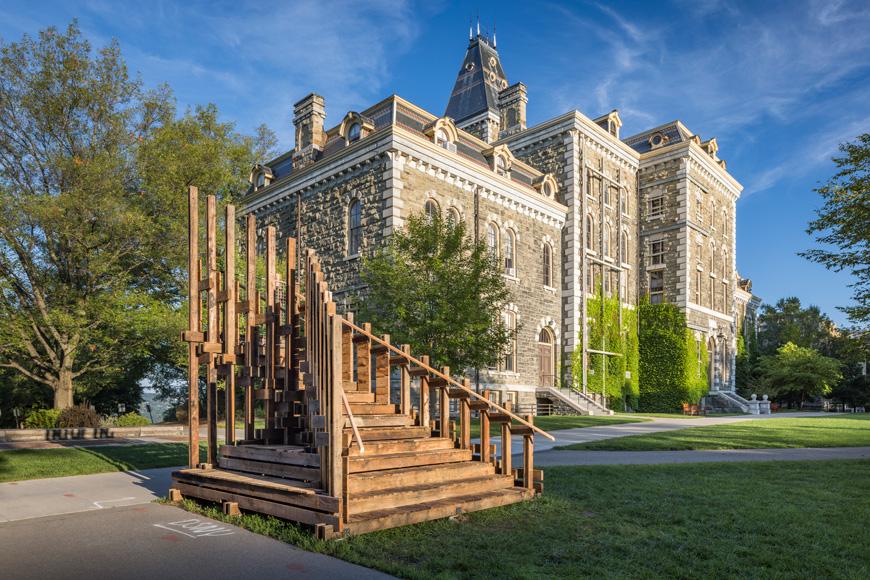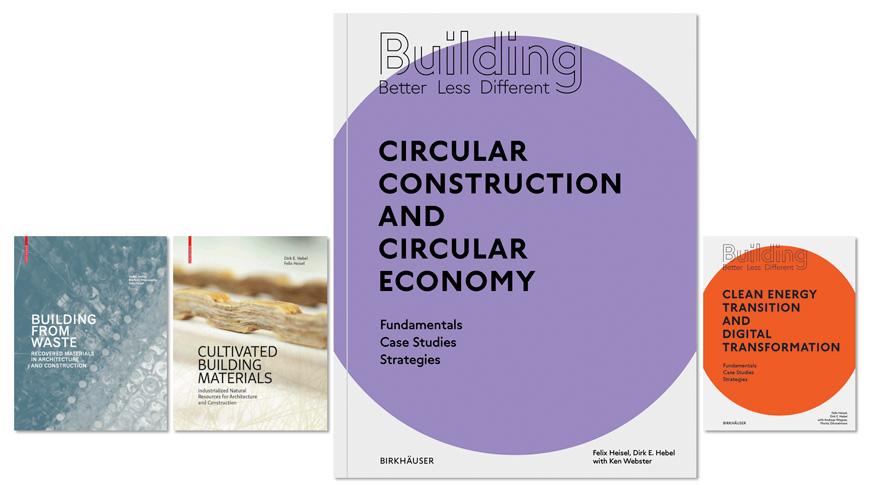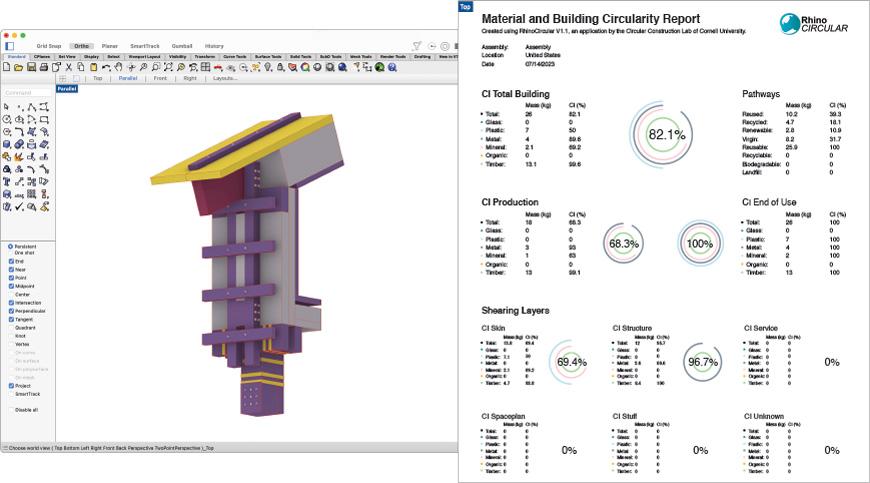Felix Heisel
Felix Heisel is an Assistant Professor and the Director of the Circular Construction Lab at Cornell University's College of Architecture, Art, and Planning. He is a faculty fellow at the Cornell Atkinson Center for Sustainability and a graduate field member in architecture, systems engineering, and matter design computation. Heisel is a licensed architect in Germany and partner of 2hs Architekten und Ingenieur PartGmbB, an office specializing in the development of circular prototypologies.
Heisel's scholarship focuses on a systemic redesign of the built environment as a material depot of endless use and reconfiguration. He has received various awards for his work and published several books and articles on the topic, including Building Better – Less – Different: Circular Construction and Circular Economy (Birkhäuser, 2022); Urban Mining und kreislaufgerechtes Bauen (Urban Mining and Circular Construction, Fraunhofer IRB, 2021); Cultivated Building Materials (Birkhäuser, 2017); and Building from Waste (Birkhäuser, 2014).
Heisel graduated from the Berlin University of the Arts and has been teaching and researching at universities around the world, including the Berlage Institute; the Ethiopian Institute of Architecture, Building Construction, and City Developments; the Future Cities Laboratory Singapore; ETH Zürich; and Harvard GSD.
Academic Research/Specialty Areas
- Adaptive reuse
- Architectural design
- Alternative materials
- Circular economies
- Collaborative practice
- Housing
- Informal design
- Informality design
- Material practice
- Reuse and recycling
- Sustainability
- Urban Mining
- Urbanism
Related News
- Are Buildings Designed to Die? How Circular Construction Could Save Our Cities.
- Cornell Atkinson Awards Catalyze Solutions in Food, Climate, Clean Energy
- Cornell AAP Alumni, Faculty, and Students Answer 2025 Venice Architecture Biennale's Call to Rethink the Built Environment in an Era of Climate Challenge
- AIA New York: Circularity in Motion: Design, Policy, and Construction in Dialogue
- Investing in Washington State Changemakers: Meet the 20 Awardees of the AI for Good Lab's Open Call
Classes (Selected)
- Arch 1102 First-year Design StudioAdvanced programs in architectural design, with options in, but not limited to, urban design, architectural technology, computational design, ecology, culture, and representation.
- Arch 4619/6605 Special Topics in Environmental Systems. The Circular Economy: The Business and Science of ConstructionAdvanced programs in architectural design, with options in, but not limited to, urban design, architectural technology, computational design, ecology, culture, and representation.
- ARCH 4101/4102/5101/7912 Option StudioAdvanced programs in architectural design, with options in, but not limited to, urban design, architectural technology, computational design, ecology, culture, and representation.
Awards, Grants, and Fellowships (Selected)
- German Green Solutions Award (2020/2021)
- Beyond bauhaus – prototyping the future (2019)
- MaterialPREIS (2019)
- Zumtobel Group Award (2014)
- National German Merit Foundation (since 2010)
Exhibitions and Presentations (Selected)
- Quo Addis? Conflicts of Coexistence, at the 17th International Architecture Exhibition, 2020 Venice Biennale of Architecture, Italy (2020/21)
- Mycotecture and Urban Mining and Recycling (UMAR), two permanent exhibition pieces at Futurium Berlin, Germany (2019)
- Beyond Mining – Urban Growth, at the Seoul Biennale of Architecture and Urbanism, South Korea (2017)
- Daring Growth, at the 15th International Architecture Exhibition, 2016 Venice Biennale of Architecture, Italy (2016)
- Waste Vault, at the IdeasCity Festival, New Museum, New York City, USA (2015)
Publications (Selected)
- Heisel, Felix, Caroline O'Donnell, and Dillon Pranger. "New Deconstruction: The Rebirth of a Circular Architecture." In The Architecture of Waste: Design for a Circular Economy, edited by Caroline O'Donnell and Dillon Pranger, 191–204. New York City, USA: Routledge (2021)
- Felix Heisel. "Reuse and Recycling: Materializing a Circular Economy." In The Materials Book, edited by Ilka Ruby and Andreas Ruby, 156–60. Berlin, Germany: Ruby Press (2020)
- Felix Heisel and Sabine Rau-Oberhuber. Calculation and Evaluation of Circularity Indicators for the Built Environment Using the Case Studies of UMAR and Madaster. Journal of Cleaner Production 243 (SI Urban Mining): 118482 (2019)
- Felix Heisel and Dirk E. Hebel. Pioneering Construction Materials through Prototypological Research. Biomimetics 4 (SI Proto-Architecture and Unconventional Biomaterials): 56 (2019)







